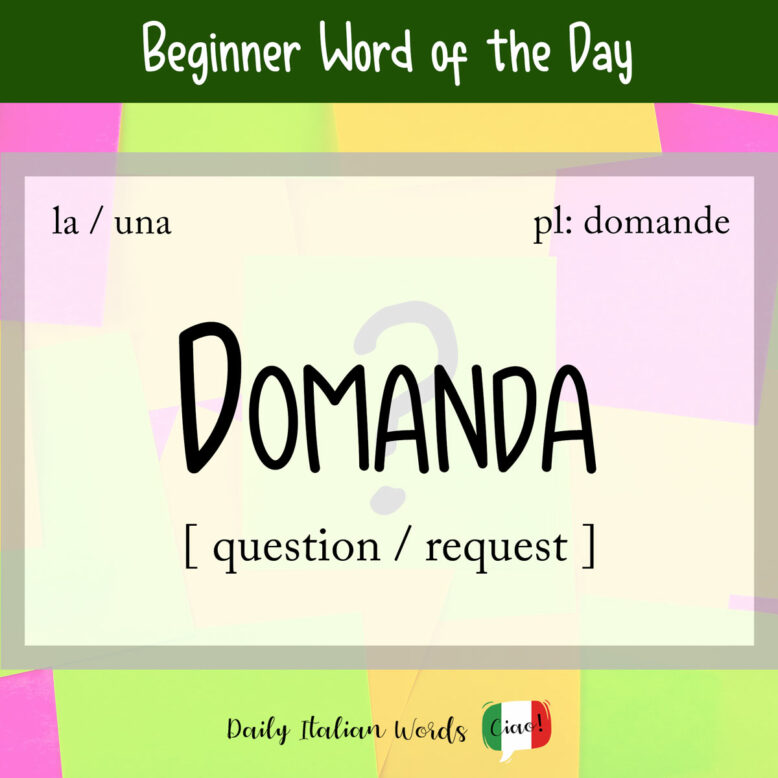When learning a new language, it is always important to ask questions, even if we feel self-conscious or embarrassed! The Italian word for question is domanda, which is derived from the verb domandare (to ask / inquire / request).

Domanda is a feminine noun, so it takes the following definite and indefinite articles:
- la domanda = the question
- le domande = the questions
- una domanda = a question
- delle domande = (some) questions
Three verbs you will often see in the company of domanda are fare (to do / to make), avere (to have) and rivolgere (to address / to direct). In this particular context, though, fare takes on the meaning of “to ask”.
- fare una domanda = to ask a question
- avere una domanda = to have a question
- rivolgere una domanda = to pose a question
Ho una domanda da farti.
I have a question for you.

A common response to a question you don’t have the answer to is Bella domanda! (Good question!).
Secondo te, le scuole riapriranno domani visto che questa bufera di neve sta passando? – Bella domanda!
In your opinion, will the schools re-open tomorrow since this snowstorm is coming to an end? – Good question!
When dealing with a written document addressed to an office, organisation, or authority, the word domanda takes on a completely different meaning. Depending on the context, it can be translated as request, application and sometimes claim.
- una domanda per un visto = a visa request / application
- una domanda per un mutuo = a mortgage application
- una domanda di lavoro = a job application
- una domanda di trasferimento = a transfer request
- una domanda di pensione = a pension claim
Some verbs you might see used with domanda in this context include accogliere (to grant), respingere (to dismiss), presentare (to submit), and of course, fare (to make / do but in this case, to apply).
Ieri ho presentato una domanda di lavoro presso il consolato italiano.
Yesterday I submitted a job application to the Italian consulate.
A domanda di matrimonio, on the other hand, is a marriage proposal, while a domanda di divorzio is a divorce petition.

In economic terms, domanda always translates as demand. For example, market demand is domanda di mercato whereas supply and demand translates as domanda e offerta.
Heather Broster is a graduate with honours in linguistics from the University of Western Ontario. She is an aspiring polyglot, proficient in English and Italian, as well as Japanese, Welsh, and French to varying degrees of fluency. Originally from Toronto, Heather has resided in various countries, notably Italy for a period of six years. Her primary focus lies in the fields of language acquisition, education, and bilingual instruction.


